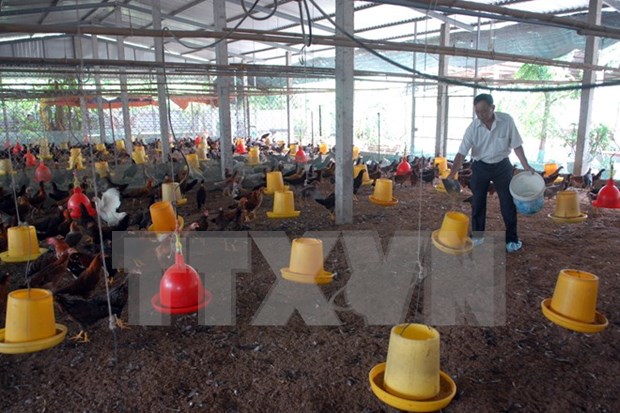Report on farmer cooperation and linkages in agricultural production
Oxfam in Vietnam has launched a report on farmer cooperation and linkages in agricultural production in Hanoi on August 20.
 Illustrative image (Source: VNA)
Illustrative image (Source: VNA)The study was conducted by Oxfam and the Institute of Research and Consultancy on Development (RCD) in the provinces of Ninh Binh, Lam Dong and Dong Thap.
Oxfam’s study confirmed that developing a cooperative economy is a major and sensible strategy. However, enactment and enforcement of policies has encountered many obstacles and difficulties.
Collaborative group models have significantly increased in quantity and become a popular choice for many farmers.
The model is more suited to the capacity and demands of farmers because it helps ensure the fundamental principles of voluntary membership, autonomy, independence and transparency.
Nearly 75 percent of farmers supported the principles of democratic control and transparency in cooperation and linkages that allow farmers to give their opinions.
According to Nguyen Thi Le Hoa from Oxfam in Vietnam, promoting cooperation and linkages needs to stem from practical circumstances, demands, expectations as well as diverse cooperation and linkage capacities of farmers.
Farmers are interested sharing benefits and risks and playing an active role in developing and operating cooperation and linkages rather than being imposed on by fixed models and cooperative methods. They need to be trusted and given opportunities to showcase their potential and support to participate in new partnerships
Statistics show that since the introduction of the 2003 Cooperative Act, there have been at least 143 policies and legal documents enacted on the collective economy.
However, understandings on the nature of collective economies remains limited and are unable to catch-up with development practices, said Nguyen Van Thuc from the RCD.
Many enacted policies have not yet promoted the proper nature and role of farmer organisations as an independent partner in development, he added.
Capacity of management teams, operating mechanisms and information and communication transparency are the three most important factors. The market-oriented mindset of participating farmers is the guiding factor in product quality, flexibility and the adaptability of linkages, said Thuc.-VNA













